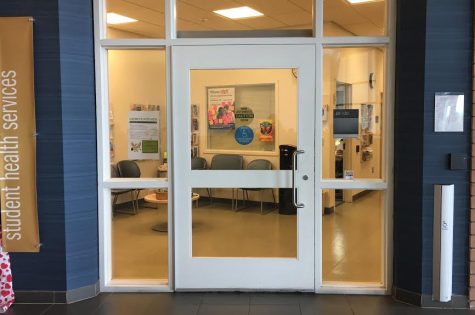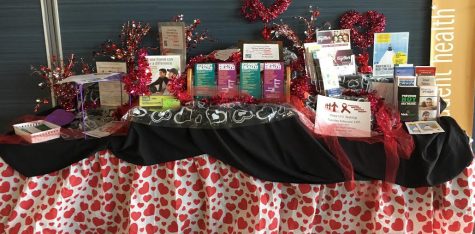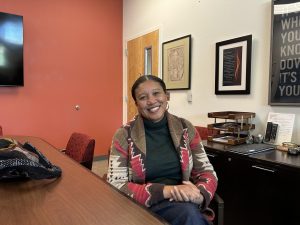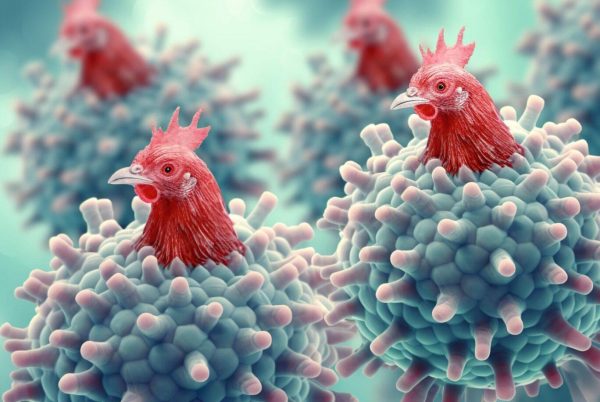Can’t Influenza Me!

February 20, 2019
THE CHAOTIC LIFESTYLE OF A GROSSMONT STUDENT CAN WREAK HAVOC ON A PERSON’S IMMUNE SYSTEM, BUT WITH HELPFUL ADVICE FROM EXPERTS ON CAMPUS, GRIFFINS WILL NOT ONLY ACE THEIR CLASSES, BUT THEIR HEALTH HABITS AS WELL.

With the constant flow of students pacing the Grossmontcampus halls and classrooms, crossing paths with a plethora of people becomes inevitable. A common fact that students tend to forget (or blatantly ignore) is that, as humans, we are not only exchanging subtle glances at one another, but we are also swapping germs along with other bacteria undetected by the human eye. While these microorganisms are impossible to avoid altogether, students can
still practice healthy habits to decrease their likelihood of getting sick, especially during a stressful semester.
Which brings us to an interesting correlation: why does it seem like every semester during midterm and finals you contract some wicked cold and your body just wants to physically and mentally shut-down? This not-so-funny irony is actually no coincidence.
To help further understand, Grossmont Nursing Instructor Gary Bigge broke down this connection: “Lifestyle plays a big role; so does diet and nutrition. You go to school and typically end up gaining some weight, and that’s usually a bad sign because we’re studying and we’re eating in place (of exercise).” He continued: “Students typically will cut exercise because it’s often not their favorite thing to begin with and then, they’re in ‘shortcut mode’ because they need time to study and they take that time away from food prep and exercise. Therefore, they don’t get their exercise and end up eating a lower quality of food.” These unhealthy imbalances already leave students prone and
vulnerable to germs. Then add in the unbeneficial stress that finals and tests invite, and it’s no wonder you feel that obnoxious tickle in your throat when trying to cram.
Bigge further elaborated on this: “Then students try to burn the candle and stay up late because they want to do well and they don’t get the rest that they need. That wears them down. So you’re not eating right, you’re not sleeping right, you’re not exercising, right, so you’re pretty much almost there in terms of being sick.”
While this harsh reality does unfortunately hold true, the resources and knowledge which Grossmont students have at their sanitized fingertips can make them capable of combating and avoiding even the toughest influenza. To better educate students, The Summit compiled a checklist through information gathered from the knowledge of health experts at Grossmont College, as they provided ways students can maintain their health, sanity and
GPA in a hectic and exhausting school year.
NUTRITION: When life gets chaotic, sometimes it’s beneficial to just go back to the basics; that’s why experts at Grossmont plead to not skip meals and practice healthy eating habits. Grossmont Health Services Nurse Elaine Adlam insisted: “One major factor is good eating; make sure you definitely eat breakfast.” While it’s so easy to neglect, the old cliché does ring-in some truth as “the most important meal of the day.” Another basic necessity students often neglect or replace is staying hydrated. “Definitely drinking water is really important along with healthy food and vitamins,” affirmed by Grossmont Nursing Student Lorenzo Canizales.
EXERCISE: One of the largest contributors to leading a healthy lifestyle, yet it can be the toughest to maintain for a student that’s constantly on the go. Bigge offers a unique and easy way to get the blood flowing, especially when students are in “finals mode.” He suggested: “Get outside and walk, depending on your conditioning and your neighborhood. Go to a certain house or a park. Walk that, come back, continue studying; you’ll do much better. You’ll de-stress and get your endorphins going which will make you feel better.”
He continued with testament of his own experiences: “And personally, I notice a lot of times that things that I hadn’t quite figured out, just come to me as I’m walking. But if I sit there and put my head on the desk and say, ‘C’mon c’mon c’mon,’ it doesn’t always come.” This advice can also benefit anyone who has ever endured the dreaded “writer’s block.”

SLEEP: Hands-down one of the most enjoyable of ways to keep your health on par. Throughout the tests and deadlines of a busy semester, though, this cherished pastime is forced to be put on the back-burner. Students often stay up late cramming information, yet this lack of sleep is actually putting their body through more stress. Bigge debunked an outdated myth. “There is that old saying that ‘sleep is for sissies’ and really, no. Sleep is to keep you
healthy,” he contested. And let’s face it, does anyone really enjoy slumping into class with massive bags underneath their eyes? You’ll noticeably look and feel better with the correct amount of sleep.
DE-STRESSING: This tool goes hand-in-hand with sleep on the checklist and is a huge factor for students to maintain their health and overall sanity. Along with taking a walk, Bigge also advised on the importance of simply relaxing and taking a nice warm shower.
“Something people say is, ‘It comes to you when you take your shower,’” Bigge said. “Well, that’s the reward for taking your shower. You need to relax take a hot shower before you go to bed; don’t cut all your corners that you learned for so long.”
While Bigge offered remedies students can use at home to de-stress, Grossmont also offers resources on campus as well. “To me one of the best ways to avoid over-stressing is to go to “Mindfulness & Meditation” group counseling sessions because it gives you the tools,” Adlam explained. “It’s run by a counselor, so you’re going have that ability to interact with someone who knows what they’re talking about.” At times, students just need to take a step back from whatever assignment is pushing them to get a clear

mind and clear bill of health.
HAND WASHING: This is the big one. It’s such an easy task, yet it gets neglected daily. The spreading of germs can happen instantly through dirty-hand contamination, and here at Grossmont, students get their hands on a lot of different things.
“Hand washing can knock out a bunch,” Bigge emphasized. “Because a lot of the stuff that attacks you came from your own hands because you have no idea how often we touch our face unconsciously.”
He continued: “If you really just had to say one thing, it would be wash your hands. Be sure to be aware of where your hands are—the shopping cart, the elevator button, the handrails on stairs, computer pads, mouses, they all are just germ magnets. And that stuff goes from hand to mouth and into the respiratory.”
Using hand sanitizer throughout the day can decrease your chances of spreading germs and bacteria, Bigge and Canizales both suggested.













